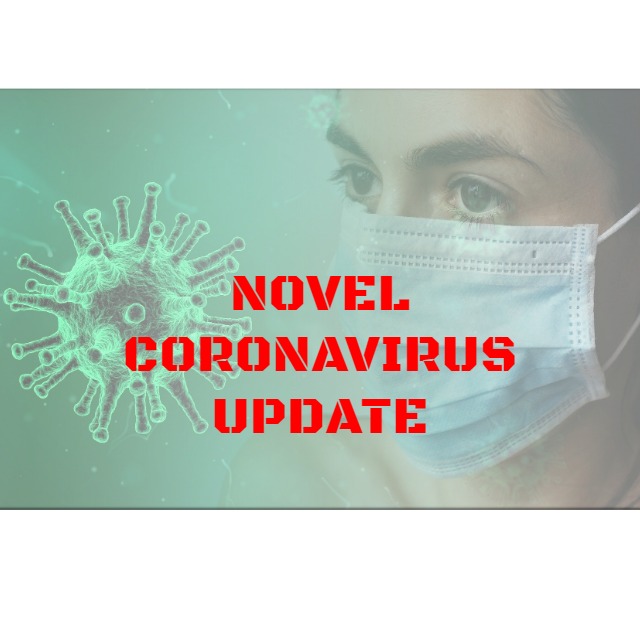Posted at 7:27 a.m. Updated at 11:16 a.m.
This article will be updated as more information becomes available.
STATE UPDATES
The Minnesota Department of Health reports that as of this morning, there are 1,069 cases of COVID-19 in the state. Thirty-four Minnesotans have died as a result of the disease, and 64 are in critical care.
Over 500 patients have recovered and no longer need to be isolated. Likely exposure is most often linked to community transmission at 35 percent, with known contact with another COVID-19 case accounting for 25 percent of cases.
Governor Tim Walz signed two more executive orders yesterday.
Executive Order 20-28 authorizes out-of-state mental health providers to treat Minnesota patients via telehealth services to help ensure that the mental health needs of Minnesotans are met during the stress and uncertainty the COVID-19 pandemic. Many Minnesotans receive mental healthcare services from providers in neighboring states. Executive Order 20-28 ensures that care can continue. Executive Order 20-28 also waives certain late fees and deadlines for licensure of dentists, barbers, and cosmetologists.
To provide relief to Minnesota’s workforce during the COVID-19 pandemic, Executive Order 20-29 makes two amendments to Executive Order 20-05 (Providing Immediate Relief to Employers and Unemployed Workers During the COVID-19 Peacetime Emergency). The first amendment provides an administrative fix to streamline applications for Unemployment Insurance (UI) benefits. The second amendment implements a federal notification requirement that will help Minnesota qualify for additional federal UI funds.
Gov. Tim Walz also launched a discrimination hotline to reinforce the state’s efforts to protect the civil rights of Minnesotans during the COVID-19 pandemic. The helpline will allow Minnesotans who experience or witness discrimination to report incidents directly to the Minnesota Department of Human Rights, from 8 a.m. to 4:30 p.m. The hotline was launched amid reports of heightened discrimination against Asian-Americans and Pacific Islander-Americans.
Minnesotans may call the Discrimination Helpline at 1-833-454-0148 or complete and submit this online form.
STATE’S TOP PROSECUTORS ANNOUNCE COVID-19 ACTION TEAM
U.S. Attorney for the District of Minnesota Erica MacDonald and Minnesota’s Attorney General Keith Ellison announced yesterday the formation of the state COVID-19 action team, which will be focused on investigating and prosecuting unlawful activity associated with the COVID-19 pandemic.
This team will enforce all state and federal laws and executive orders, and encourages the public to report any COVID-19-related criminal behavior, scams, price gouging, cybercrimes, hate crimes and other unlawful activity to the Minnesota Attorney General’s Office.
“Now is the time for Minnesotans to turn toward each other, not against each other. The vast majority of people and businesses are doing that: they’re doing right by each other, their customers, and communities, and we thank them. But for those that aren’t — for those who are profiteering off the pandemic or using it as a pretext to attack other people — we’re not standing for it. We’re pooling all our resources to come after them and to help all other Minnesotans afford their lives and live with dignity and respect,” Attorney General Ellison said.
local updates
The Bemidji City Council heard an update Monday, April 6, from Sanford Health on COVID-19. The peak is expected to hit in mid to late June. Read more about what happened here.
Bemidji Parks and Recreation will close its playgrounds today in city parks, but the parks and trails will remain open.
The Beltrami County Board of Commissioners is also expected to hear about COVID-19 updates today during their work session. We’ll have Commissioner Richard Anderson on Chat About today. Listen to the interview at 12:15 p.m. on KB101’s website.
Locally, Beltrami County has seven cases (Minnesota Department of Health still says six), Clearwater has two, Cass County now has three, Itasca has two, Koochiching has one, and Roseau County now also has one case of COVID-19. Polk and Mahnomen Counties also each have one confirmed case.
VETERANS
Minnesota veterans impacted by COVID-19 may be eligible for grants from the Minnesota Department of Veterans Affairs. MDVA began accepting applications on Monday, April 6. These relief grants will be one-time payments of $1,000. To apply, contact your local County Veterans Services Officer.
In Beltrami County, that’s Scotty Allison, and more information on how to contact him is available here.
“We are grateful to Governor Walz and the Minnesota Legislature for their support of Minnesota Veterans in the recently enacted Emergency Response package,” said MDVA Commissioner Larry Herke. “Minnesota Veterans have served our country in many past conflicts, so it is only right that we support them now during this challenging time.”
Eligible Applicants must be:
- A Veteran or the surviving spouse of a deceased Veteran as defined by MN Statute 197.447;
- A Minnesota Resident, and;
- Negatively financially impacted by COVID-19.
SANFORD HEALTH
Sanford Health and The Evangelical Lutheran Good Samaritan Society are requiring caregivers and providers to wear surgical facemasks at all times while in clinic and care settings. Sanford and the Good Samaritan Society are intensifying infection control measures to protect patients, residents and health care staff during this rapidly evolving and widespread COVID-19 pandemic.
“Our knowledge regarding COVID-19 is rapidly expanding. This allows us the opportunity to update personal protective equipment policies to incorporate the best evidence,” said Allison Suttle, M.D., chief medical officer of Sanford Health. “This proactive action will help minimize virus transmission from people who may carry COVID-19 but aren’t showing symptoms.”
The new requirements apply to Sanford Health providers working in inpatient units, ambulatory clinics and procedural areas and all Good Samaritan Society caregivers who work in skilled nursing facilities, assisted living, home health and hospice.
Providers caring for presumed or known positive COVID-19 patients will continue to wear N95 respirators or PAPRs.
“The universal masking strategy for caregivers is not a panacea,” Suttle said. “It must be accompanied by reuse of surgical facemasks and face shields, meticulous hand hygiene, proper mask use and strict avoidance of touching the mask to reduce the risk of contamination.”
Sanford Health and the Good Samaritan Society currently have an adequate stock of surgical masks for caregivers, but are following conservation measures to ensure a long-term supply ahead of an expected increase in COVID-19 cases. Providers can wear surgical masks for five days or five shifts if they are in good condition. Due to the nature of this rapidly evolving public health crisis, universal masking may be re-evaluated as supply availability and logistics change.




